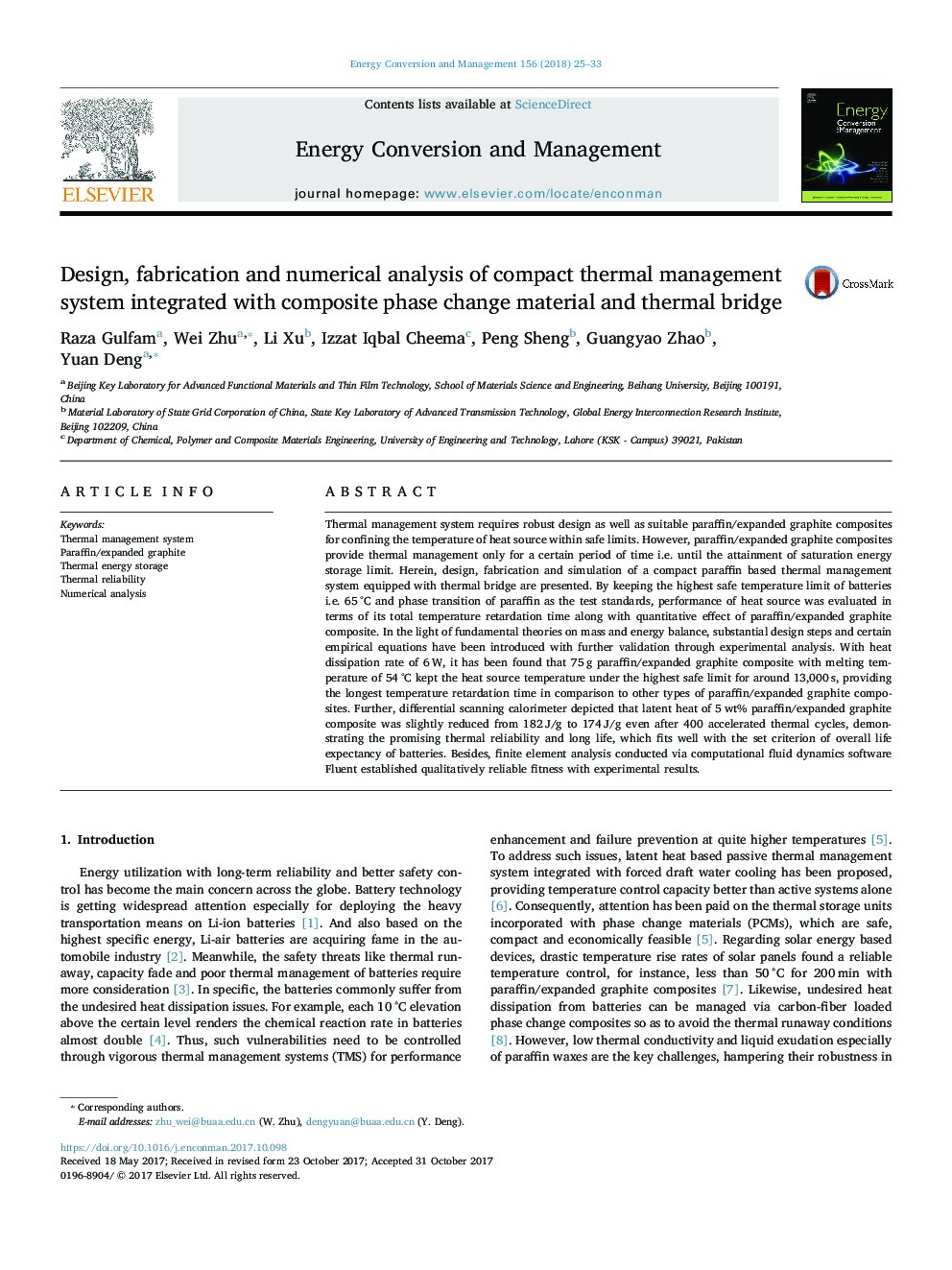| Article ID | Journal | Published Year | Pages | File Type |
|---|---|---|---|---|
| 7159357 | Energy Conversion and Management | 2018 | 9 Pages |
Abstract
Thermal management system requires robust design as well as suitable paraffin/expanded graphite composites for confining the temperature of heat source within safe limits. However, paraffin/expanded graphite composites provide thermal management only for a certain period of time i.e. until the attainment of saturation energy storage limit. Herein, design, fabrication and simulation of a compact paraffin based thermal management system equipped with thermal bridge are presented. By keeping the highest safe temperature limit of batteries i.e. 65â¯Â°C and phase transition of paraffin as the test standards, performance of heat source was evaluated in terms of its total temperature retardation time along with quantitative effect of paraffin/expanded graphite composite. In the light of fundamental theories on mass and energy balance, substantial design steps and certain empirical equations have been introduced with further validation through experimental analysis. With heat dissipation rate of 6â¯W, it has been found that 75â¯g paraffin/expanded graphite composite with melting temperature of 54â¯Â°C kept the heat source temperature under the highest safe limit for around 13,000â¯s, providing the longest temperature retardation time in comparison to other types of paraffin/expanded graphite composites. Further, differential scanning calorimeter depicted that latent heat of 5â¯wt% paraffin/expanded graphite composite was slightly reduced from 182â¯J/g to 174â¯J/g even after 400 accelerated thermal cycles, demonstrating the promising thermal reliability and long life, which fits well with the set criterion of overall life expectancy of batteries. Besides, finite element analysis conducted via computational fluid dynamics software Fluent established qualitatively reliable fitness with experimental results.
Related Topics
Physical Sciences and Engineering
Energy
Energy (General)
Authors
Raza Gulfam, Wei Zhu, Li Xu, Izzat Iqbal Cheema, Peng Sheng, Guangyao Zhao, Yuan Deng,
